Categories
Politics

Peasants, Capitalism, and Imperialism in an Age of Politico-Ecological Crisis
Mark Tilzey, Fraser Sugden
This book utilises a new theoretical approach to understand the dynamics of the peasantry, and peasant resistance, in relation to capitalism, state, class, and imperialism in the global South. In this companion volume to Peasants, Capitalism, and the Work of Eric R. Wolf , the authors further develop their thinking on agrarian transitions to capitalism, the development of imperialism, and the place of the peasantry in these dynamics, with special reference to the global South in an era of politico-ecological crisis. Focusing on the political role of the peasantry in contested transitions to capitalism and to modes of production outside of, and beyond, capitalism, the book contends that an understanding of these dynamics requires an analysis of class struggle and of the resources, material and discursive, that different classes can bring to bear on this struggle. The book focuses on the rise of capitalism in the global South within the context of imperial subordination to the global North, and the place of the peasantry in shaping and resisting these dynamics. The book presents case studies of contested transitions to agrarian capitalism in Bolivia, Ecuador, Guatemala, Mexico, Peru, and South Asia. It also examines the case of transition to a post-capitalist mode of production in Cuba. The book concludes with an assessment of the nature of capitalism and imperialism within the context of the contemporary politico-ecological crisis, and the potential role of the peasantry as agent of emancipatory change towards social and environmental sustainability. This book will be of great interest to students and researchers in the areas of peasant studies, rural politics, agrarian studies, development, and political ecology.
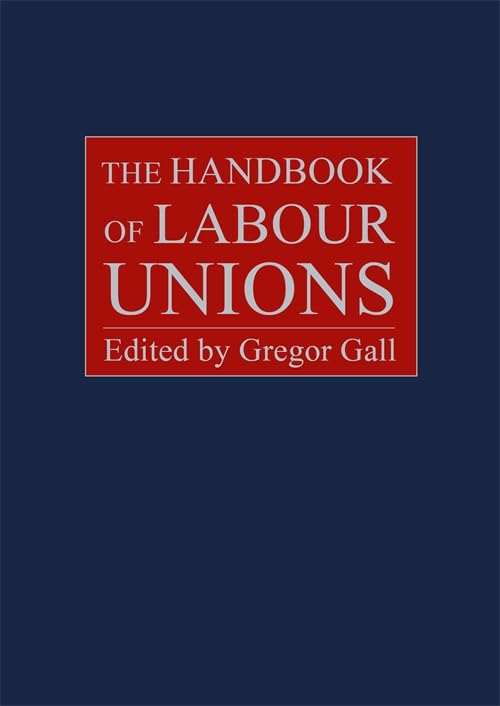
The Handbook of Labour Unions
Gregor Gall
Before the 2023 cost-of-living crisis, some believed that the Covid-19 pandemic had ushered in a new era of state intervention and the end of neoliberalism. This was a forlorn hope, as governments intervened precisely to preserve the status quo. Growing levels of income and wage inequality, the precaritization of many sections of the labour force and proletarianization of many in the highly unionised professional middle classes have made labour unions as salient as ever. This handbook assembles an array of experts to critically engage with the debates and discussions about the role and purpose of unions and the many means by which they seek to attain them. The book provides insights into how challenges and problems may be surmounted and aims to fuse the understanding of the past and present to provide a general guide for shaping the future.
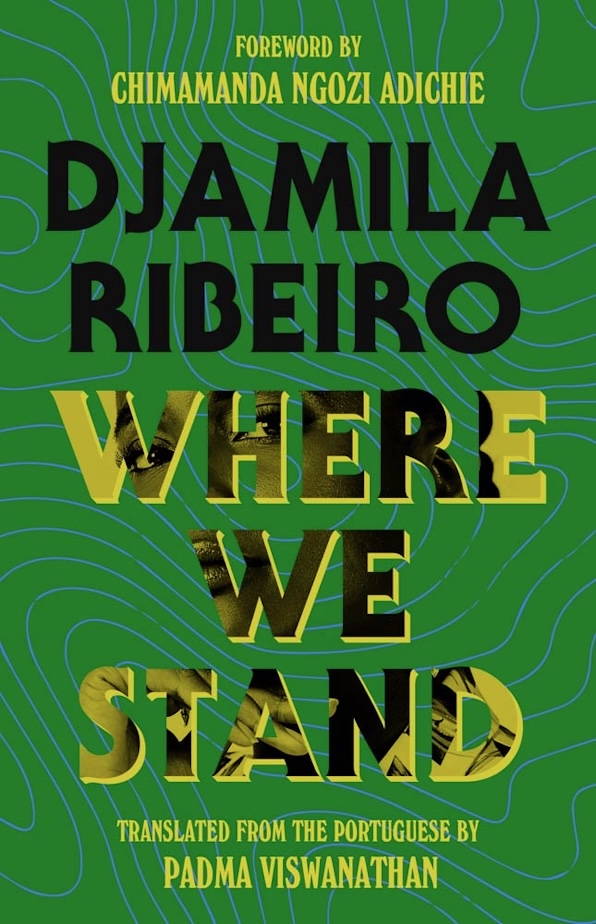
Where We Stand
Djamila Ribeiro, Padma Viswanathan, Chimamanda Ngozi Adichie
The instant bestseller from Djamila Ribeiro that sparked a major Black feminist movement in Brazil In a society shaped by the legacies of enslavement, white supremacy, and sexism, who has the right to a voice? In this elegant essay, Djamila Ribeiro offers a compelling intervention into contemporary discussions of power and identity: the concept of "speaking place." A crucial component of conversations on race and gender in Brazil, speaking place is the idea that everyone has a social position in the world, and what we are able to say, and how it is received by others, depends on it. Ribeiro highlights the precarious position of the Black woman as “the other of the other”—located on the margins of conversations about race, which often focus on men, and on the fringes of feminism, which centers white women. Tracing the history of Black feminist thought through several centuries, she examines the ways that Black women have been silenced, ignored, and punished for speaking. Building on feminist standpoint theory, and in conversation with the works of Sojourner Truth, bell hooks, Audre Lorde, and others, Ribeiro invites all of us to recognize where we stand, to imagine geographies different from those we’ve inherited, and to speak a more humane world into being.

Imminent: Inside the Pentagon's Hunt for UFOs
Luis Elizondo
The former head of the Pentagon program responsible for the investigation of UFOs—now known as unidentified anomalous phenomena (UAP)—reveals long-hidden truths with profound implications for not only national security but our understanding of the universe. Luis “Lue” Elizondo is a former senior intelligence official and special agent who was recruited into a strange and highly sensitive US government program to investigate UAP incursions into sensitive military installations and air space. To accomplish his mission, Elizondo had to rely on decades of experience gained working some of America’s most sensitive and classified programs. Even then, he was not prepared for what he would learn, and the truth about the government’s long shadowy involvement in UAP investigations, and the lengths officials would take to keep them a secret. The stakes could not be higher. Imminent is a first-hand, revelatory account inside the Pentagon’s most closely guarded secret and a call to action to confront humanity’s greatest existential questions.
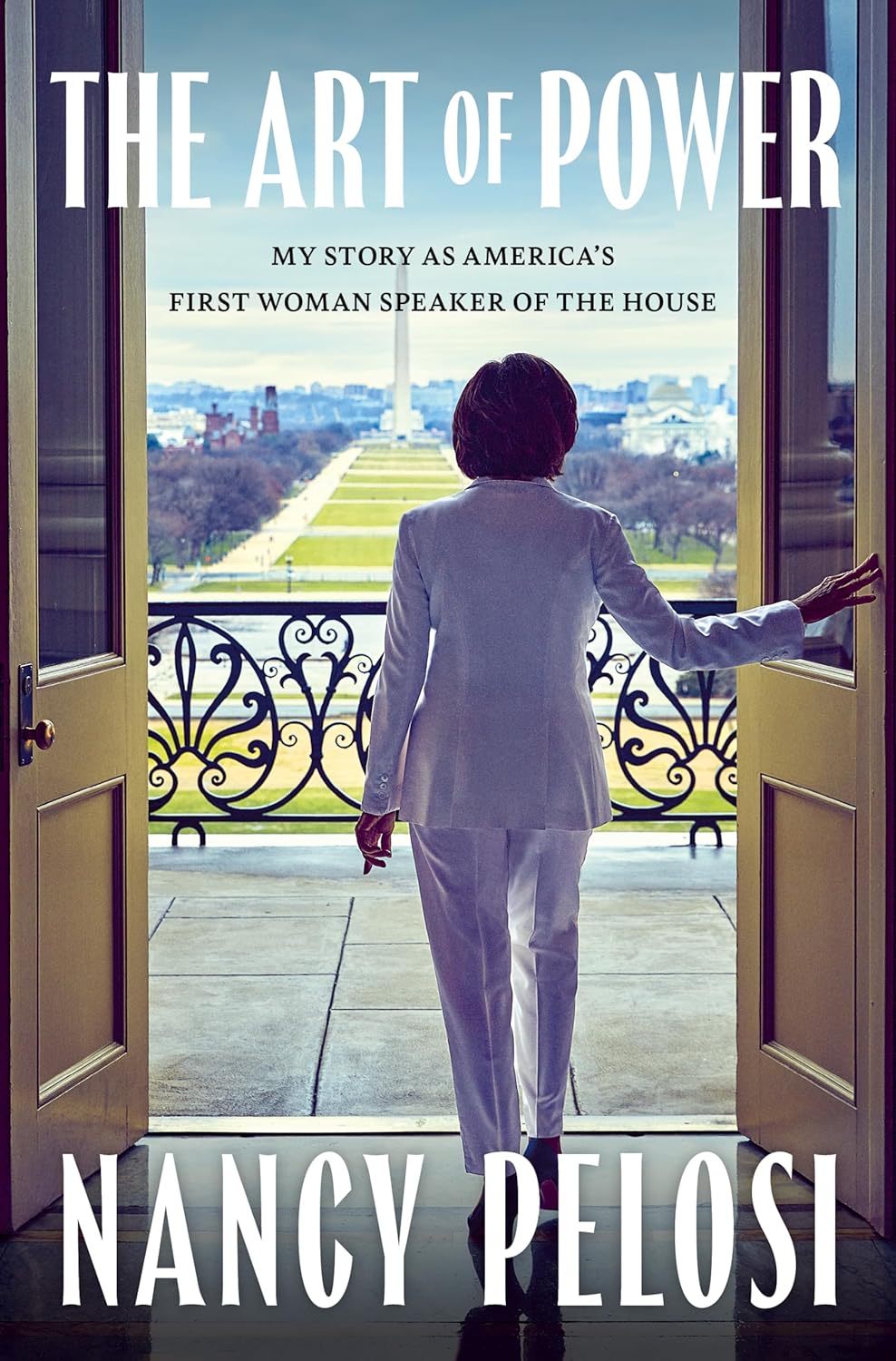
The Art of Power: My Story as America's First Woman Speaker of the House
Nancy Pelosi
The most powerful woman in American political history tells the story of her transformation from housewife to House Speaker how she became a master legislator, a key partner to presidents, and the most visible leader of the Trump resistance. When, at age forty-six, Nancy Pelosi, mother of five, asked her youngest daughter if she should run for Congress, Alexandra Pelosi answered: ';Mother, get a life!' And so Nancy did, and what a life it has been. InThe Art of Power, Pelosi describes for the first time what it takes to make history not only as the first woman to ascend to the most powerful legislative role in America, but to pass laws that would save lives and livelihoods, from the emergency rescue of the economy in 2008 to transforming health care. She describes the perseverance, persuasion, and respect for her members that it took to succeed, but also the joy of seeing America change for the better. Among the best-prepared and hardest-working Speakers in history, Pelosi worked to find common ground, or stand her ground, with presidents from Bush to Biden. She also shares moving moments with soldiers sent to the front lines, women who inspired her, and human rights activists who fought by her side. Pelosi took positions that established her as a prophetic voice on the major moral issues of the day, warning early about the dangers of the Iraq War and of the Chinese government's long record of misbehaviour. This moral courage prepared her for the arrival of Trump, with whom she famously tangled, becoming a red-coated symbol of resistance to his destructive presidency. Here, she reveals how she went toe-to-toe with Trump, leading up to January 6, 2021, when he unleashed his post-election fury on the Congress. Pelosi gives us her personal account of that day: the assault not only on the symbol of our democracy but on the men and women who had come to serve the nation, never expecting to hide under desks or flee for their lives and her determined efforts to get the National Guard to the Capitol. Nearly two years later, violence and fury would erupt inside Pelosi's own home when an intruder, demanding to see the Speaker, viciously attacked her beloved husband, Paul. Here, Pelosi shares that horrifying day and the traumatic aftermath for her and her family.
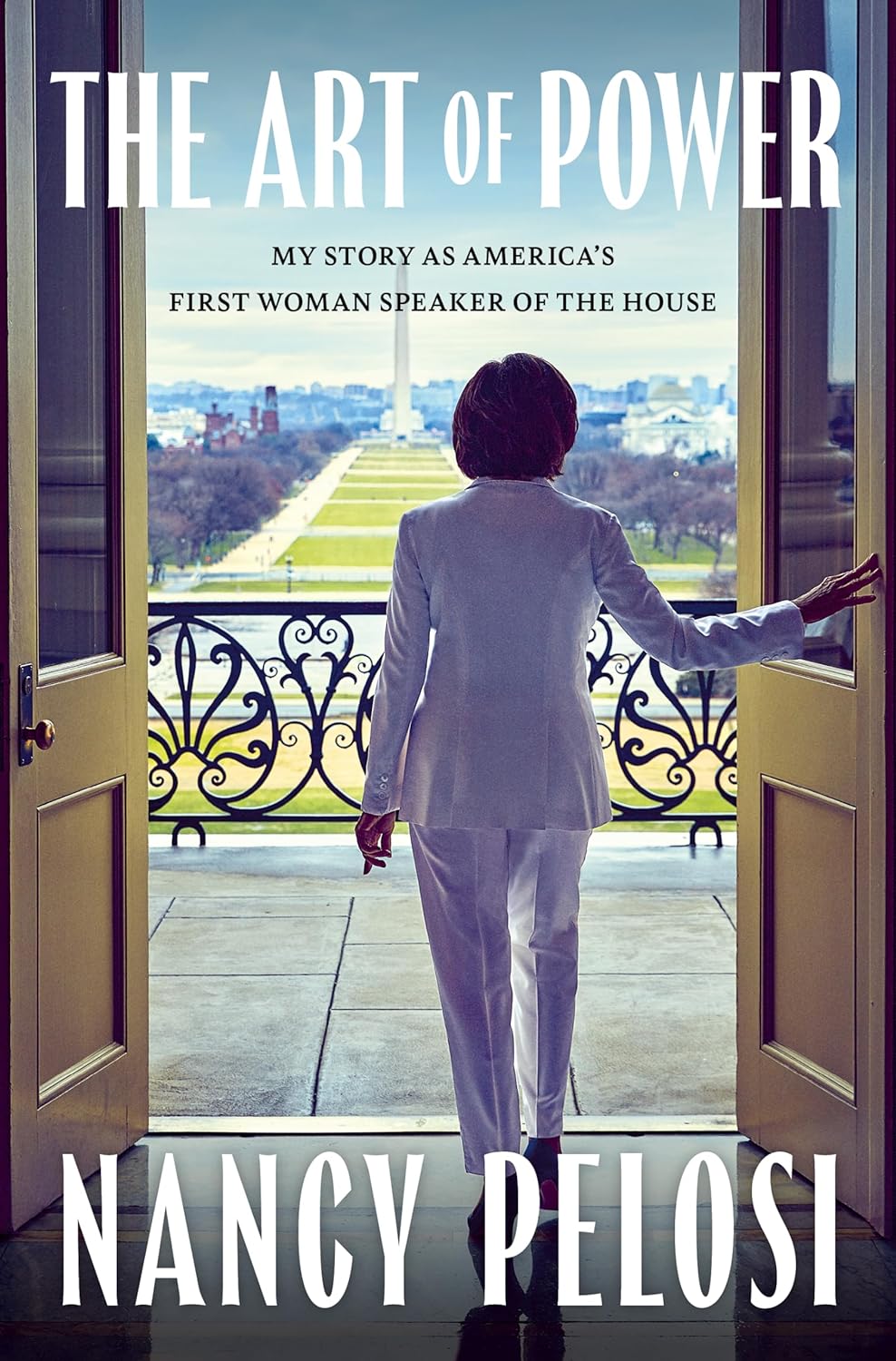
The Art of Power: My Story as America's First Woman Speaker of the House
Nancy Pelosi
The most powerful woman in American political history tells the story of her transformation from housewife to House Speaker how she became a master legislator, a key partner to presidents, and the most visible leader of the Trump resistance. When, at age forty-six, Nancy Pelosi, mother of five, asked her youngest daughter if she should run for Congress, Alexandra Pelosi answered: ';Mother, get a life!' And so Nancy did, and what a life it has been. InThe Art of Power, Pelosi describes for the first time what it takes to make history not only as the first woman to ascend to the most powerful legislative role in America, but to pass laws that would save lives and livelihoods, from the emergency rescue of the economy in 2008 to transforming health care. She describes the perseverance, persuasion, and respect for her members that it took to succeed, but also the joy of seeing America change for the better. Among the best-prepared and hardest-working Speakers in history, Pelosi worked to find common ground, or stand her ground, with presidents from Bush to Biden. She also shares moving moments with soldiers sent to the front lines, women who inspired her, and human rights activists who fought by her side. Pelosi took positions that established her as a prophetic voice on the major moral issues of the day, warning early about the dangers of the Iraq War and of the Chinese government's long record of misbehaviour. This moral courage prepared her for the arrival of Trump, with whom she famously tangled, becoming a red-coated symbol of resistance to his destructive presidency. Here, she reveals how she went toe-to-toe with Trump, leading up to January 6, 2021, when he unleashed his post-election fury on the Congress. Pelosi gives us her personal account of that day: the assault not only on the symbol of our democracy but on the men and women who had come to serve the nation, never expecting to hide under desks or flee for their lives and her determined efforts to get the National Guard to the Capitol. Nearly two years later, violence and fury would erupt inside Pelosi's own home when an intruder, demanding to see the Speaker, viciously attacked her beloved husband, Paul. Here, Pelosi shares that horrifying day and the traumatic aftermath for her and her family.
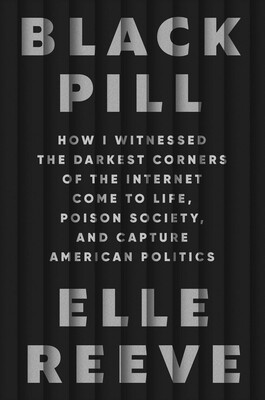
Black Pill: How I Witnessed the Darkest Corners of the Internet Come to Life, Poison Society, and Capture American Politics
Elle Reeve
This tour de force of investigative journalism—in the vein of The Next Civil War and Why We’re Polarized—depicts the United States of America as a country at a crossroads with the battle between the right and left spilling out from the darkest corners of the internet into the real world with often tragic consequences. Award-winning journalist and CNN correspondent Elle Reeve was not surprised by the insurrection at the Capitol on January 6, 2021. With years of in-depth research and probing interviews under her belt, Reeve was aware of the preoccupations of the online far right and their journey from the computer to QAnon, militias, and racist groups. At the same time, Reeve saw a parallel growth of counterforces, with citizen vigilantes using new tools and tactics to take down the far right. This ongoing battle, long fought mainly on the internet, has spilled out into the real world with greater and greater frequency, culminating in the attempted coup on January 6th. Combining her years of on-the-ground reporting, Reeve clearly illustrates this shocking sweep of violence, where this cultural shift came from, and where it is going. She also introduces us to a shocking but powerful cast of characters, such as the creator of 8chan—an online hub for conspiracies and misogynistic rhetoric—and the white power leader who is still pulling the strings from a prison cell. Uncovering the hidden links between these events and how we can prevent further upheavals of this nature, Black Pill is a necessary read for any supporter of democracy.
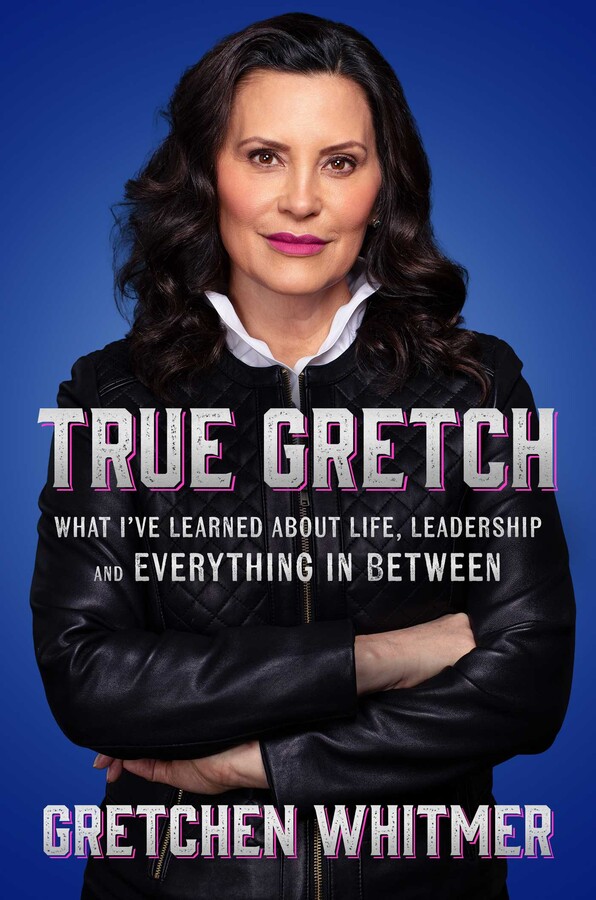
True Gretch: What I've Learned About Life, Leadership, and Everything in Between
Gretchen Whitmer
From trailblazing Michigan governor and rising Democratic star Gretchen Whitmer comes an unconventionally honest, personal, and funny account of her remarkable life and career, full of insights that guided her through a global pandemic, showdowns with high-profile bullies, and even a kidnapping and assassination plot. When Gretchen Whitmer was growing up, her beloved grandmother Nino taught her that you can always find something good in other people. “Even the meanest person might have pretty eyes,” she would say. Nino’s words persuaded Whitmer to look for the good in any person or situation—just one of many colorful personal experiences that have shaped her political vision. (And, as Whitmer writes, one that resonated more than another piece of advice her grandmother offered, to “never part your hair in the middle.”) In this candid and inspiring book, Whitmer reveals the principles and instincts that have shaped her extraordinary career, from her early days as a lawyer and legislator and her 2018 election as governor of Michigan, to her bold and innovative actions as she led the state through a series of unprecedented crises. Her motto in politics, she writes, is to “get shit done.” Whitmer shares the lessons in resilience that steered her through some of the most challenging events in Michigan’s history, such as the Covid-19 pandemic, a five-hundred-year flood, the rise of domestic terrorism, and the fierce fight to protect reproductive rights. Along the way, she tells stories about the outsize characters in her family, her lifelong clumsy streak, the wild comments she’s heard on the campaign trail, her self-deprecating social media campaigns (including her star turn as a talking potato with lipstick), and the slyly funny tactics she deploys to neutralize her opponents. Written with Whitmer’s trademark sense of humor and straight-shooting style, True Gretch is not only a compelling account of her remarkable journey, but also a blueprint for anyone who wants to make a difference in their community, their country, or the world. It is a testament to the power of humor, perseverance, and compassion in the face of darkness.
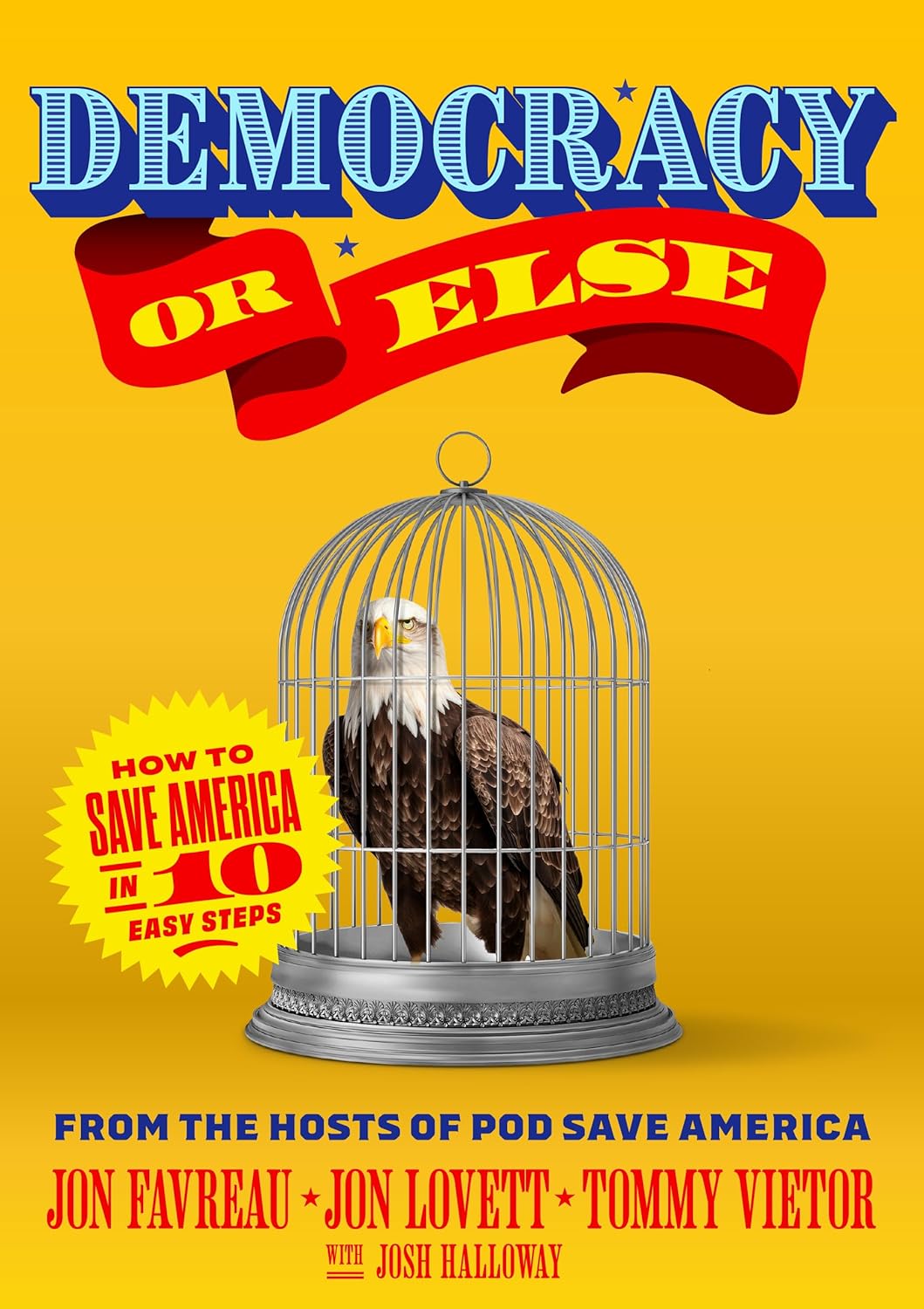
Democracy or Else: How to Save America in 10 Easy Steps
Jon Favreau, Jon Lovett, Tommy Vietor, Josh Halloway
From your friends at Pod Save America and Crooked Media comes a useful and illustrated guide to saving American democracy just in time for the 2024 election and 2025 insurrection If you’re looking to navigate the chaotic, dunce-infested waters of American politics, Democracy or Else is here to help you tackle what might be the greatest question of our How do you get involved in the political process and make a real difference without giving in to the sense of impending dread that hangs over our society like a nameless stench? Each chapter will take readers step-by-step through the perilous journey of: - Getting informed when you won't know which influencer to trust (all of them!) - Donating and volunteering where you can have the biggest impact - Organizing, protesting, and even running for office yourself - Staying engaged in politics without losing hope or your mind or all of your friends Democracy or Else is a resource for everyone—from political junkies following every turn of the news cycle to young people getting ready to vote for the first time. And it's filled with practical advice from some of the smartest experts and least annoying politicians around. The stakes and average global temperatures have never been higher—but there have also never been so many opportunities to join the fight. It’s an age of contradictions!
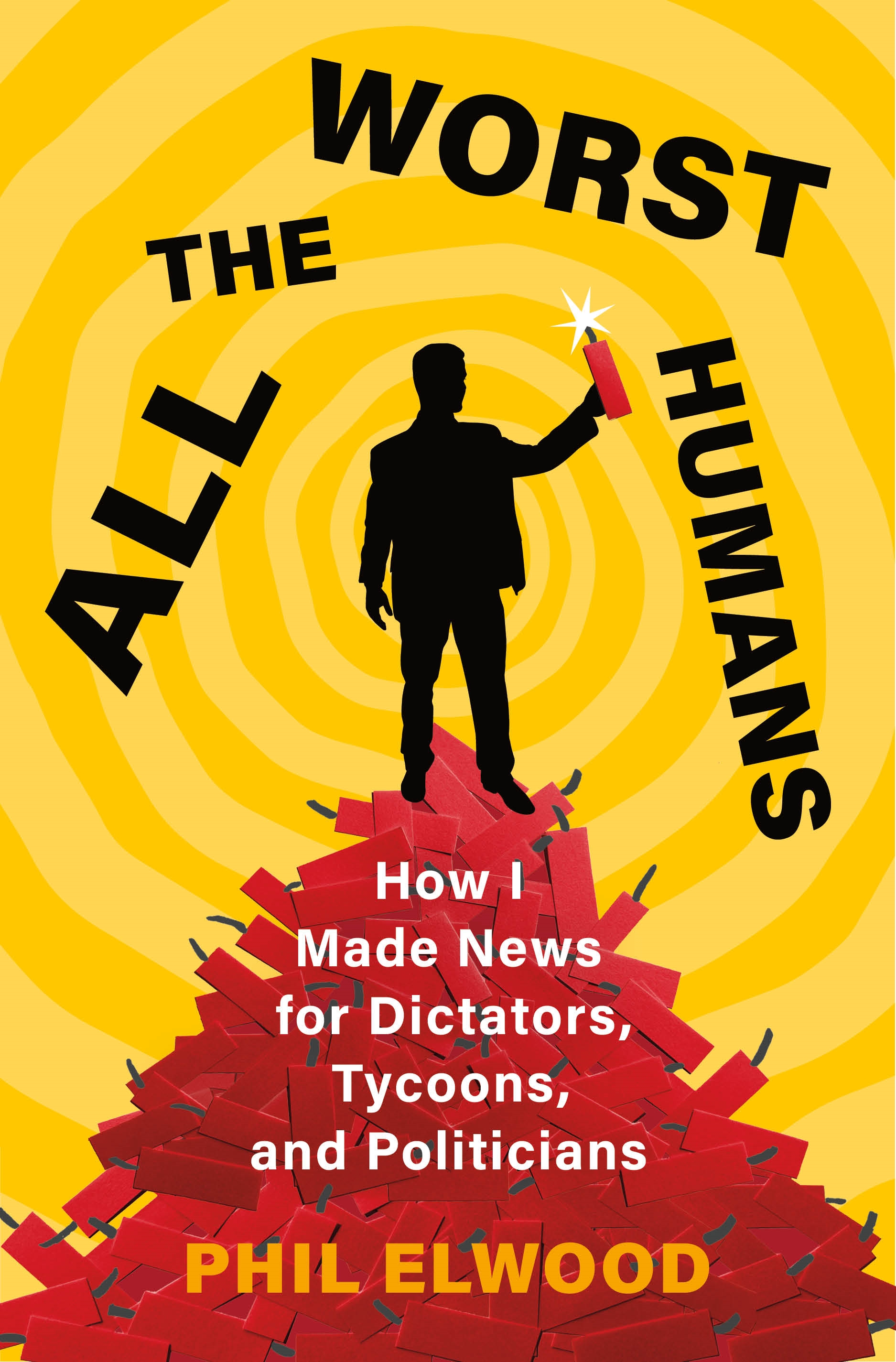
All the Worst Humans: How I Made News for Dictators, Tycoons, and Politicians
Phil Elwood
New York Times Editors' Choice Named a best book of the year by Amazon "A rollicking, unexpectedly affecting story. . . It’s going to be one of the big, buzzy Beltway books of the year." —Politico A bridge-burning, riotous memoir by a top PR operative in Washington who exposes the secrets of the $129-billion industry that controls so much of what we see and hear in the media—from a man who used to pull the strings, and who is now pulling back the curtain. After nearly two decades in the Washington PR business, Elwood wants to come clean, by exposing the dark underbelly of the very industry that’s made him so successful. The first step is revealing exactly what he’s been up to for the past twenty years—and it isn’t pretty. Elwood has worked for a murderer’s row of questionable clients, including Gaddafi, Assad, and the government of Qatar. In All the Worst Humans, Elwood unveils how the PR business works, and how the truth gets made, spun, and sold to the public—not shying away from the gritty details of his unlikely career. This is a piercing look into the corridors of money, power, politics, and control, all told in Elwood’s disarmingly funny and entertaining voice. He recounts a four-day Las Vegas bacchanal with a dictator’s son, plotting communications strategies against a terrorist organization in Western Africa, and helping to land a Middle Eastern dictator’s wife a glowing profile in Vogue on the same time the Arab Spring broke out. And he reveals all his slippery tricks for seducing journalists in order to create chaos and ultimately cover for politicians, dictators, and spies—the industry-secret tactics that led to his rise as a political PR pro. Along the way, Phil walks the halls of the Capitol, rides in armored cars through Abuja, and watches his client lose his annual income at the roulette table. But as he moved up the ranks, he felt worse and worse about the sleaziness of it all—until Elwood receives a shocking wake-up call from the FBI. This risky game nearly cost Elwood his life and his freedom. Seeing the light, Elwood decides to change his ways, and his clients, and to tell the full truth about who is the worst human.
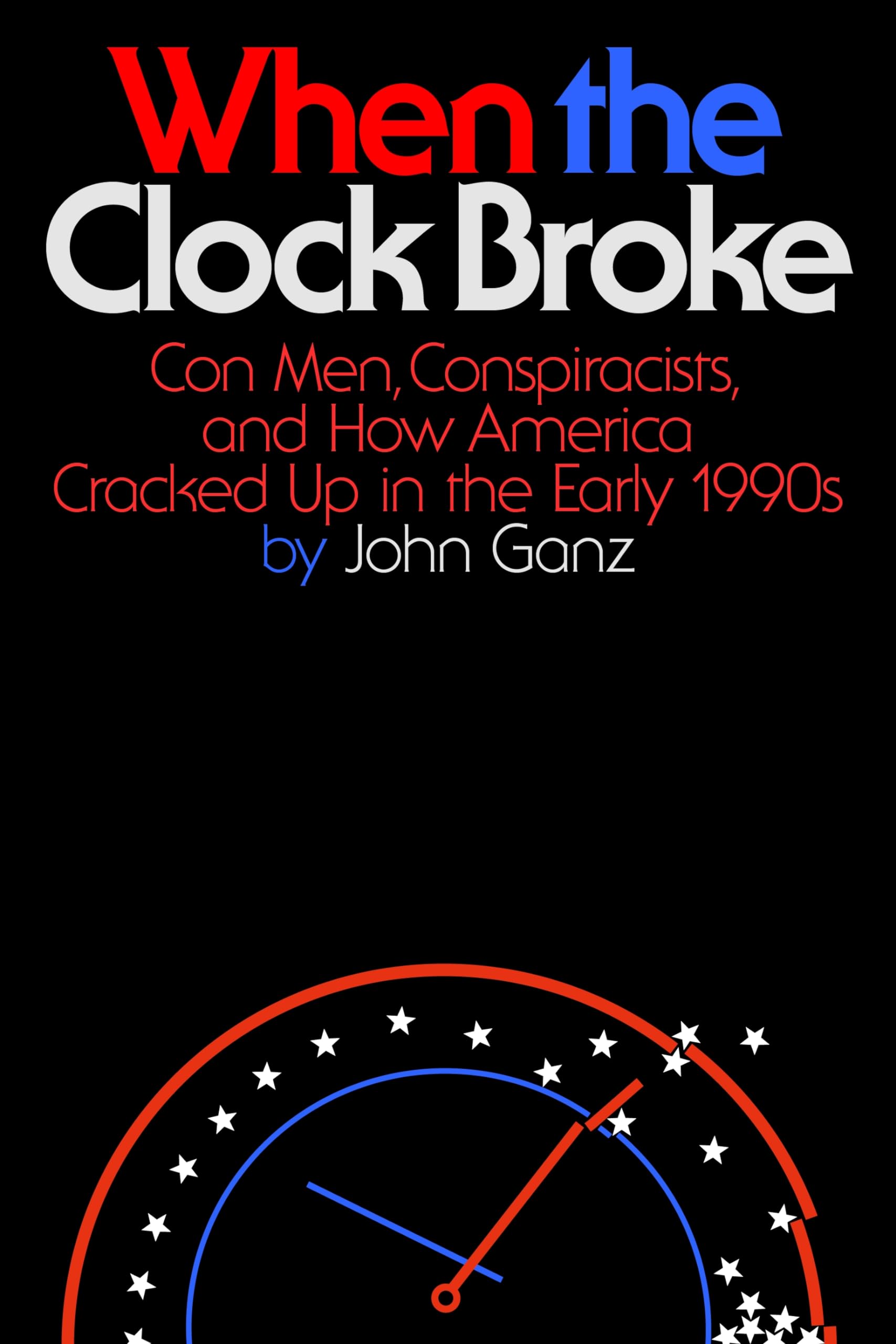
When the Clock Broke: Con Men, Conspiracists, and How America Cracked Up in the Early 1990s
John Ganz
"John Ganz is the most important young political writer of his generation—just the one our dark moment needs." —Rick Perlstein "Lively and kaleidoscopic." —Andrew Marantz, The New Yorker "John Ganz belongs to a species of public intellectual that is almost extinct . . . When the Clock Broke is the first of what I hope will be a shelf of books that help us uncover the true history of our times." —Jeet Heer A lively, revelatory look back at the convulsions at the end of the Reagan era—and their dark legacy today. With the Soviet Union extinct, Saddam Hussein defeated, and U.S. power at its zenith, the early 1990s promised a “kinder, gentler America.” Instead, it was a period of rising anger and domestic turmoil, anticipating the polarization and resurgent extremism we know today. In When the Clock Broke, the acclaimed political writer John Ganz tells the story of America’s late-century discontents. Ranging from upheavals in Crown Heights and Los Angeles to the advent of David Duke and the heartland survivalists, the broadcasts of Rush Limbaugh, and the bitter disputes between neoconservatives and the “paleo-con” right, Ganz immerses us in a time when what Philip Roth called the “indigenous American berserk” took new and ever-wilder forms. In the 1992 campaign, Pat Buchanan's and Ross Perot’s insurgent populist bids upended the political establishment, all while Americans struggled through recession, alarm about racial and social change, the specter of a new power in Asia, and the end of Cold War–era political norms. Conspiracy theories surged, and intellectuals and activists strove to understand the “Middle American Radicals” whose alienation fueled new causes. Meanwhile, Bill Clinton appeared to forge a new, vital center, though it would not hold for long. In a rollicking, eye-opening book, Ganz narrates the fall of the Reagan order and the rise of a new and more turbulent America.

What This Comedian Said Will Shock You
Bill Maher
The hilarious and controversial host of HBO’s Real Time with Bill Maher has written his funniest, most opinionated, and most necessary book ever—a brilliantly astute and acerbically funny vivisection of American life, politics, and culture. Some of the smartest commentary about what’s happening in America is coming from a comedian—this comedian being Bill Maher. If you want to understand what’s wrong with this country, it turns out that one of the best informed and most thought-provoking analysts is this very funny pothead. The book was inspired by the “editorial” Bill delivers at the end of each episode of Real Time. These editorials are direct-to-camera sermons about culture, politics, and what’s happening in the world. To put this book together, Maher reviewed more than a decade of his editorials, rewriting, reimagining, and updating them, and adding new material to speak exactly to the moment we’re in. Free speech, cops, drugs, race, religion, the generations, cancel culture, the parties, the media, show biz, romance, health—Maher covers it all. The result is a hugely entertaining work of commentary about American culture in the tradition of Mark Twain, Will Rogers, and H. L. Mencken.

Ghosted: An American Story
Nancy French
A riveting look inside a life of poverty, success, and the inner circles of political influence--from the foothills of Appalachia all the way to the White House. New York Times bestselling ghostwriter Nancy French is coming out of the shadows to tell her own incredible story. Nancy's family hails from the foothills of the Appalachians, where life was dominated by coal mining, violence, abuse, and poverty. Longing for an adventure, she married a stranger, moved to New York, and dropped out of college. In spite of her lack of education, she found success as a ghostwriter for conservative political leaders. However, when she was unwilling to endorse an unsuitable president, her allies turned on her and she found herself spiritually adrift, politically confused, and occupationally unemployable. Republicans mocked her, white nationalists targeted her, and her church community alienated her. But in spite of death threats, sexual humiliation, and political ostracization, she learned the importance of finding her own voice--and that the people she thought were her enemies could be her closest friends. A poignant and engrossing memoir filled with humor and personal insights, Ghosted is a deeply American story of change, loss, and ultimately love.

Nuclear War: A Scenario
Annie Jacobsen
There is only one scenario other than an asteroid strike that could end the world as we know it in a matter of hours: nuclear war. And one of the triggers for that war would be a nuclear missile inbound toward the United States. Every generation, a journalist has looked deep into the heart of the nuclear military establishment: the technologies, the safeguards, the plans, and the risks. These investigations are vital to how we understand the world we really live in—where one nuclear missile will beget one in return, and where the choreography of the world’s end requires massive decisions made on seconds’ notice with information that is only as good as the intelligence we have. Pulitzer Prize finalist Annie Jacobsen’s Nuclear War: A Scenario explores this ticking-clock scenario, based on dozens of exclusive new interviews with military and civilian experts who have built the weapons, have been privy to the response plans, and have been responsible for those decisions should they have needed to be made. Nuclear War: A Scenario examines the handful of minutes after a nuclear missile launch. It is essential reading, and unlike any other book in its depth and urgency.
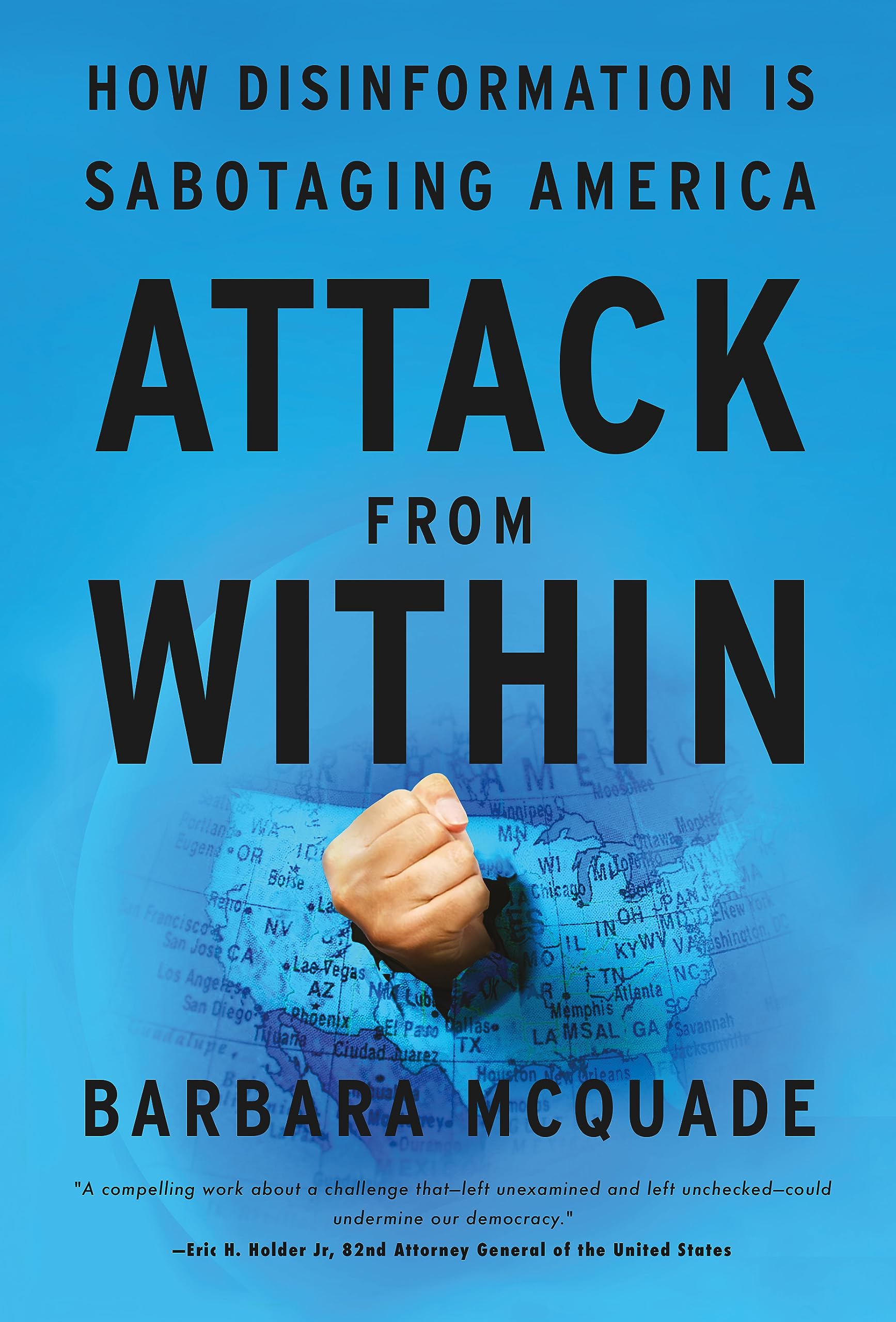
Attack from Within: How Disinformation Is Sabotaging America
Barbara McQuade
An urgent, comprehensive explanation of the ways disinformation is impacting democracy, and practical solutions that can be pursued to strengthen the public, media, and truth-based politics MSNBC's legal expert breaks down the ways disinformation has become a tool to drive voters to extremes, disempower our legal structures, and consolidate power in the hands of the few. "One of the most acute observers of our time shares . . . a compelling work about a challenge that—left unexamined and left unchecked—could undermine our democracy." —Eric H. Holder Jr, 82nd Attorney General of the United States American society is more polarized than ever before. We are strategically being pushed apart by disinformation—the deliberate spreading of lies disguised as truth—and it comes at us from all opportunists on the far right, Russian misinformed social media influencers, among others. It's endangering our democracy and causing havoc in our electoral system, schools, hospitals, workplaces, and in our Capitol. Advances in technology including rapid developments in artificial intelligence threaten to make the problems even worse by amplifying false claims and manufacturing credibility. In Attack from Within , legal scholar and analyst Barbara McQuade, shows us how to identify the ways disinformation is seeping into all facets of our society and how we can fight against it. The book Disinformation is designed to evoke a strong emotional response to push us toward more extreme views, unable to find common ground with others. The false claims that led to the breathtaking attack on our Capitol in 2020 may have been only a dress rehearsal. Attack from Within shows us how to prevent it from happening again, thus preserving our country’s hard-won democracy.
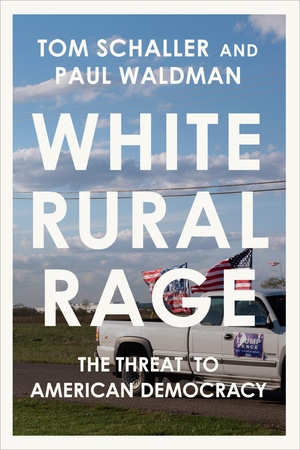
White Rural Rage: The Threat to American Democracy
Thomas F. Schaller, Paul Waldman, Tom Schaller
A searing portrait and damning takedown of America’s proudest citizens — who are also the least likely to defend its core principles White rural voters hold the greatest electoral sway of any demographic group in the United States, yet rural communities suffer from poor healthcare access, failing infrastructure, and severe manufacturing and farming job losses. Rural voters believe our nation has betrayed them, and to some degree, they’re right. In White Rural Rage, Tom Schaller and Paul Waldman explore why rural Whites have failed to reap the benefits from their outsize political power and why, as a result, they are the most likely group to abandon democratic norms and traditions. Their rage—stoked daily by Republican politicians and the conservative media—now poses an existential threat to the United States. Schaller and Waldman show how vulnerable U.S. democracy has become to rural Whites who, despite legitimate grievances, are increasingly inclined to hold racist and xenophobic beliefs, to believe in conspiracy theories, to accept violence as a legitimate course of political action, and to exhibit antidemocratic tendencies. Rural White Americans’ attitude might best be described as “I love my country, but not our country,” Schaller and Waldman argue. This phenomenon is the patriot paradox of rural The citizens who take such pride in their patriotism are also the least likely to defend core American principles. And by stoking rural Whites’ anger rather than addressing the hard problems they face, conservative politicians and talking heads create a feedback loop of resentments that are undermining American democracy. Schaller and Waldman provocatively critique both the structures that permit rural Whites’ disproportionate influence over American governance and the prospects for creating a pluralist, inclusive democracy that delivers policy solutions that benefit rural communities. They conclude with a political reimagining that offers a better future for both rural people and the rest of America.

Oath and Honor: A Memoir and a Warning
Liz Cheney
Read by Liz Cheney with 50+ audio source material clips included, Oath and Honor is a gripping first-hand account from inside the halls of Congress as Donald Trump and his enablers betrayed the American people and the Constitution—leading to the violent attack on our Capitol on January 6th, 2021—by the House Republican leader who dared to stand up to it. In the aftermath of the 2020 presidential election, Donald Trump and many around him, including certain other elected Republican officials, intentionally breached their oath to the Constitution: they ignored the rulings of dozens of courts, plotted to overturn a lawful election, and provoked a violent attack on our Capitol. Liz Cheney, one of the few Republican officials to take a stand against these efforts, witnessed the attack first-hand, and then helped lead the Congressional Select Committee investigation into how it happened. In Oath and Honor, she tells the story of this perilous moment in our history, those who helped Trump spread the stolen election lie, those whose actions preserved our constitutional framework, and the risks we still face.
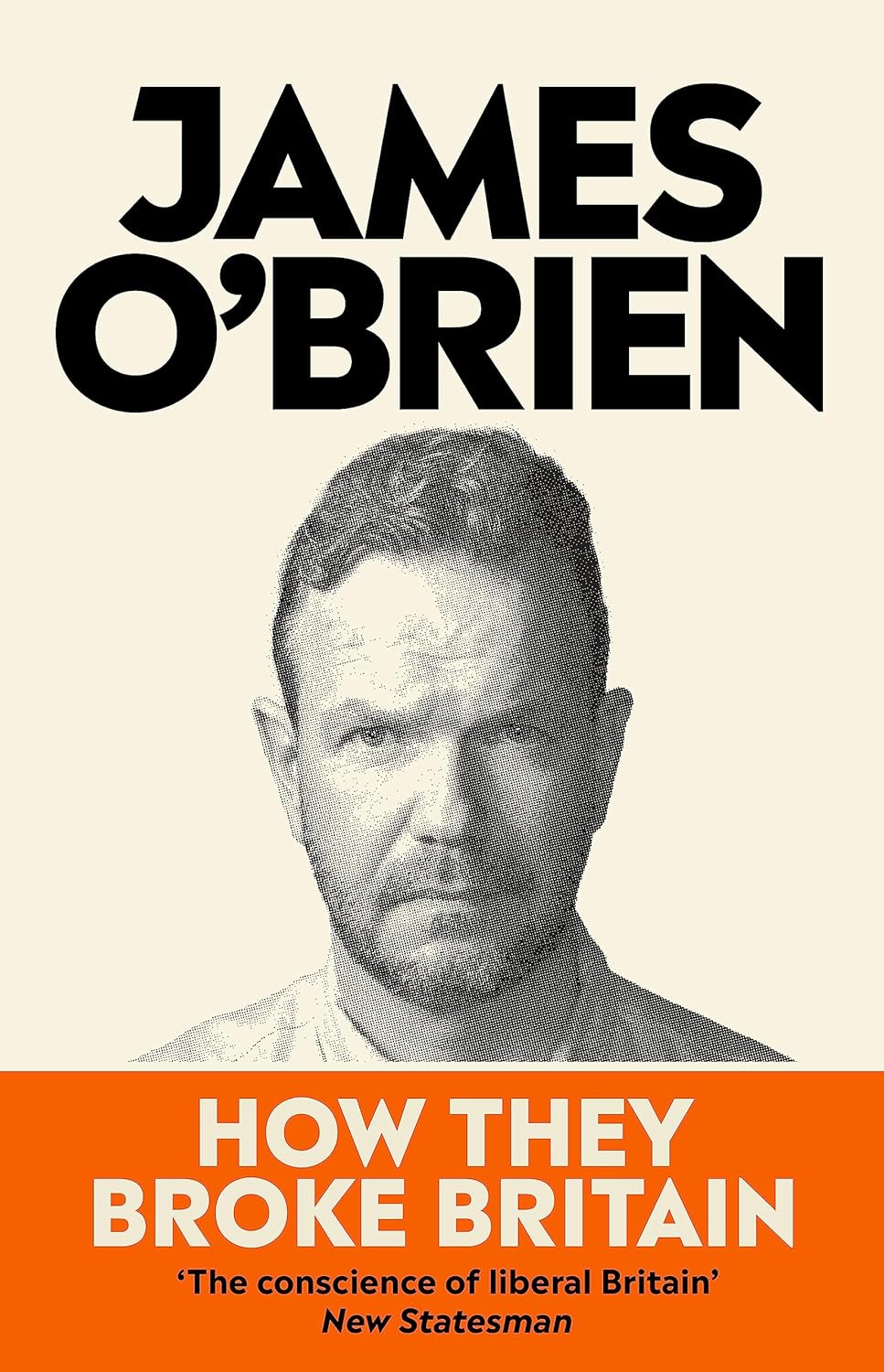
How They Broke Britain
James O'Brien
The revealing, defining account of the dark network that broke out country. Something has gone really wrong in Britain. Our economy has tanked, our freedoms are shrinking, and social divisions are growing. Our politicians seem most interested in their own careers, and much of the media only make things worse. We are living in a country almost unrecognisable from the one that existed a decade ago. But whose fault is it really? Who broke Britain and how did they do it? Bold and incisive as ever, James O'Brien reveals the shady network of influence that has created a broken Britain of strikes, shortages and scandals. He maps the web connecting dark think tanks to Downing Street, the journalists involved in selling it to the public and the media bosses pushing their own agendas. Over ten chapters, each focusing on a particular person complicit in the downfall, James O'Brien reveals how a select few have conspired - sometimes by incompetence, sometimes by design - to bring Britain to its knees.

For Love of Country: Leave the Democrat Party Behind
Tulsi Gabbard
Tulsi Gabbard was the rising star of the Democratic Party. But the growing wokeness, racism, and intolerance were more than she could stomach, and she left. This is her story. Today's Democratic Party is controlled by an elitist cabal of warmongers driven crazy by woke ideology and anti-white animus. They are a clear and present threat to the God-given freedoms enshrined in the Constitution. A soldier, former member of Congress, and a presidential candidate, Tulsi loves her country: "I answered the call of duty and took an oath, dedicating my life to supporting and defending those freedoms, both in uniform and in public office. I became a Democrat when I ran for office because I saw them as a party that stood up for the little guy and against the interests of big business and warmongers. I remained a Democrat for twenty years, albeit with an independent streak." Today that party is unrecognizable: antagonistic to people of faith, hostile to the police and law and order, suspicious of law-abiding Americans, unserious about border security, and uncritical of a national security apparatus that targets political opponents and that is dragging us ever closer to apocalyptic nuclear war. Now an Independent, Tulsi calls on those who love America to protect our rights from those who are seeking to undermine them at every turn. It’s time to say good-bye to the Democratic Party.
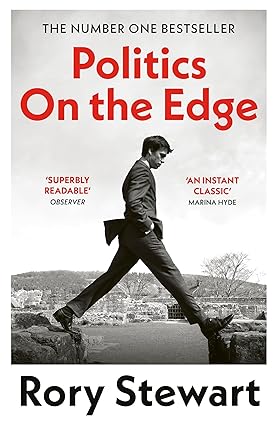
Politics on the Edge
Rory Stewart
From the former Conservative Cabinet minister and co-presenter of 2022's breakout hit podcast The Rest is Politics , a searing insider's account of ten extraordinary years in Parliament Over the course of a decade from 2010, Rory Stewart went from being a political outsider to standing for prime minister - before being sacked from a Conservative Party that he had come to barely recognise. Tackling ministerial briefs on flood response and prison violence, engaging with conflict and poverty abroad as a foreign minister, and Brexit as a Cabinet minister, Stewart learned first-hand how profoundly hollow and inadequate our democracy and government had become. Cronyism, ignorance and sheer incompetence ran rampant. Around him, individual politicians laid the foundations for the political and economic chaos of today. Stewart emerged battered but with a profound affection for his constituency of Penrith and the Border, and a deep direct insight into the era of populism and global conflict. Politics On the Edge invites us into the mind of one of the most interesting actors on the British political stage. Uncompromising, candid and darkly humorous, this is his story of the challenges, absurdities and realities of political life; a new classic of political memoir and a remarkable portrait of our age.
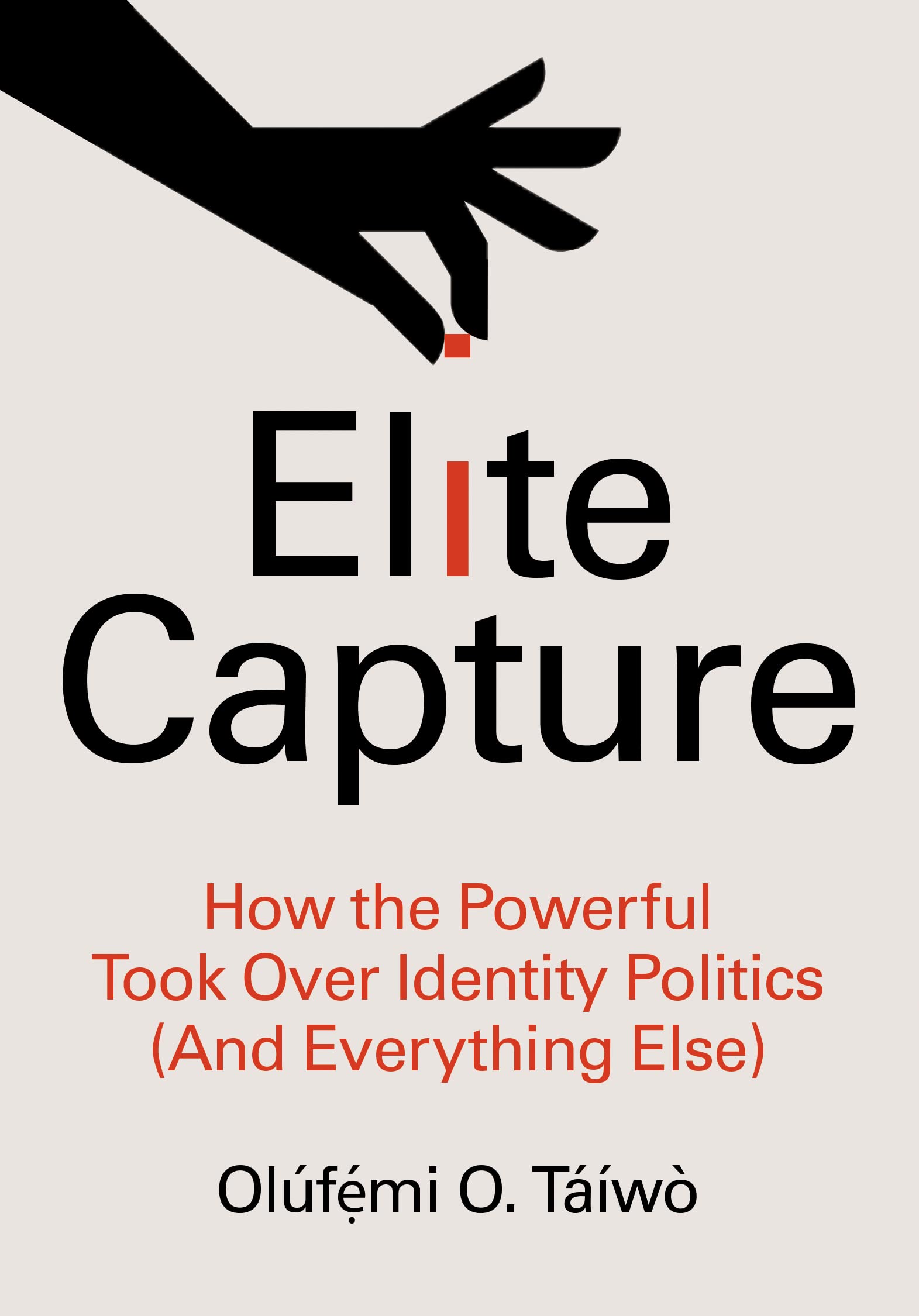
Elite Capture: How the Powerful Took Over Identity Politics
Olúfẹ́mi O. Táíwò
“Identity politics” is everywhere, polarizing discourse from the campaign trail to the classroom and amplifying antagonisms in the media, both online and off. But the compulsively referenced phrase bears little resemblance to the concept as first introduced by the radical Black feminist Combahee River Collective. While the Collective articulated a political viewpoint grounded in their own position as Black lesbians with the explicit aim of building solidarity across lines of difference, identity politics is now frequently weaponized as a means of closing ranks around ever-narrower conceptions of group interests. But the trouble, Olúfẹ́mi O. Táíwò deftly argues, is not with identity politics itself. Through a substantive engagement with the global Black radical tradition and a critical understanding of racial capitalism, Táíwò identifies the process by which a radical concept can be stripped of its political substance and liberatory potential by becoming the victim of elite capture—deployed by political, social, and economic elites in the service of their own interests. Táíwò’s crucial intervention both elucidates this complex process and helps us move beyond a binary of “class” vs. “race.” By rejecting elitist identity politics in favor of a constructive politics of radical solidarity, he advances the possibility of organizing across our differences in the urgent struggle for a better world.
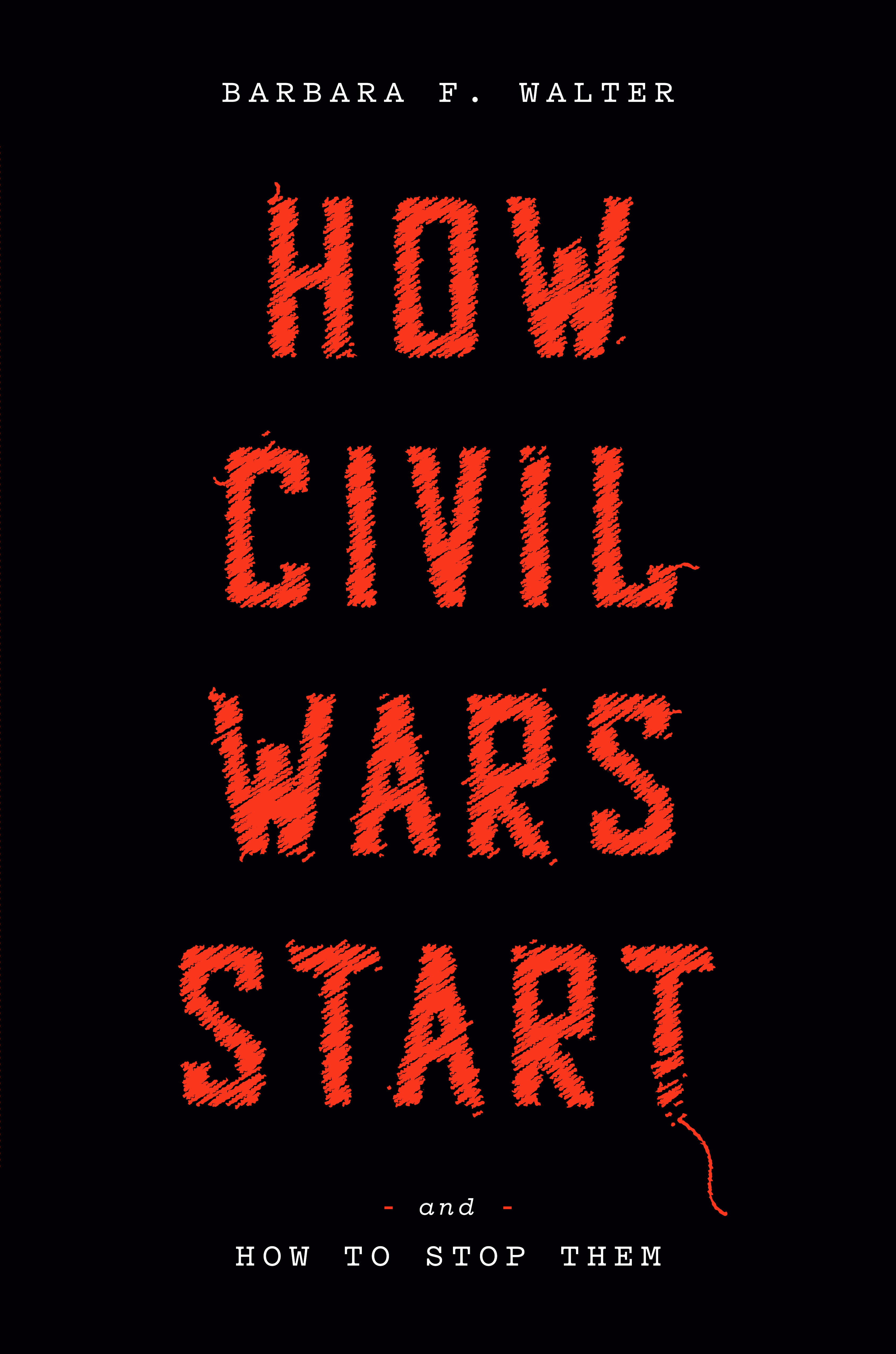
How Civil Wars Start: And How to Stop Them
Barbara F. Walter
Civil wars are the biggest danger to world peace today - this book shows us why they happen, and how to avoid them. Most of us don't know it, but we are living in the world's greatest era of civil wars. While violence has declined worldwide, civil wars have increased. This is a new phenomenon. With the exception of a handful of cases - the American and English civil wars, the French Revolution - historically it has been rare for people to organise and fight their governments. This has changed. Since 1946, over 250 armed conflicts have broken out around the world, a number that continues to rise. Major civil wars are now being fought in countries including Iraq, Syria and Libya. Smaller civil wars are being fought in Ukraine, India, and Malaysia. Even countries we thought could never experience another civil war - such as the USA, Sweden and Ireland - are showing signs of unrest. In How Civil Wars Start, acclaimed expert Barbara F. Walter, who has advised on political violence everywhere from the CIA to the U.S. Senate to the United Nations, explains the rise of civil war and the conditions that create it. As democracies across the world backslide and citizens become more polarised, civil wars will become even more widespread and last longer than they have in the past. This urgent and important book shows us a path back toward peace.

Azadi: Liberté - Fascisme - Fiction
Arundhati Roy
Azadi signifie "liberté" en ourdou. Il s'agit, à l'origine, d'un cri de ralliement cachemiri contre le gouvernement indien qui a été repris par le peuple lui-même pour protester contre ses dirigeants.Dans ce recueil d'essais brûlants d'actualité, Arundhati Roy nous met au défi de réfléchir sur le sens de la liberté dans un monde où l'autoritarisme va croissant. À travers ces textes, et ces temps troublés, elle explore l'importance du langage, le rôle de la fiction et de l'imagination, ainsi que les répercussions de la crise sanitaire sur la société indienne.Pour Arundhati Roy, la pandémie que nous traversons fait figure de portail entre un monde et un autre. En dépit de la maladie et de la dévastation qu'elle produit dans son sillage, elle représente peut-être aussi une chance pour l'humanité d'inventer un monde différent.
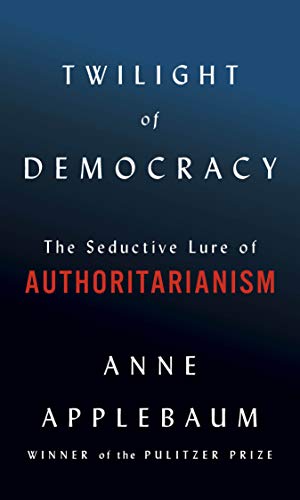
Twilight of Democracy: The Seductive Lure of Authoritarianism
Anne Applebaum
"A Pulitzer Prize-winning historian and journalist explains, with electrifying clarity, why some of her contemporaries have abandoned liberal democratic ideals in favor of strongman cults, nationalist movements, or one-party states. Across the world today, from the U.S. to Europe and beyond, liberal democracy is under siege while different forms of authoritarianism are on the rise. In Twilight of Democracy, prize-winning historian Anne Applebaum argues that we should not be surprised by this There is an inherent appeal to political systems with radically simple beliefs, especially when they benefit the loyal to the exclusion of everyone else. People are not just ideological, she contends in this captivating extended essay; they are also practical, pragmatic, opportunist. The authoritarian and nationalist parties that have arisen within modern democracies offer new paths to wealth or power for their adherents. Describing politicians, journalists, intellectuals, and others who have abandoned democratic ideals in the UK, U.S., Spain, Poland, and Hungary, Applebaum reveals the patterns that link the new advocates of illiberalism and charts how they use conspiracy theory, political polarization, social media, and nostalgia to change their societies"--
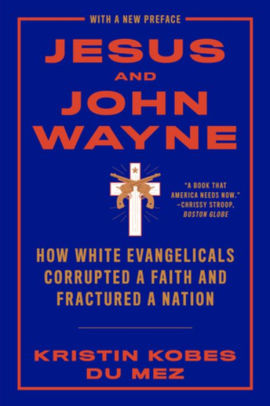
Jesus and John Wayne: How White Evangelicals Corrupted a Faith and Fractured a Nation
Kristin Kobes Du Mez
A scholar of American Christianity presents a seventy-five-year history of evangelicalism that identifies the forces that have turned Donald Trump into a hero of the Religious Right. How did a libertine who lacks even the most basic knowledge of the Christian faith win 81 percent of the white evangelical vote in 2016? And why have white evangelicals become a presidential reprobate’s staunchest supporters? These are among the questions acclaimed historian Kristin Kobes Du Mez asks in Jesus and John Wayne, which delves beyond facile headlines to explain how white evangelicals have brought us to our fractured political moment. Challenging the commonly held assumption that the “moral majority” backed Donald Trump for purely pragmatic reasons, Du Mez reveals that Donald Trump in fact represents the fulfillment, rather than the betrayal, of white evangelicals’ most deeply held values. Jesus and John Wayne is a sweeping account of the last seventy-five years of white evangelicalism, showing how American evangelicals have worked for decades to replace the Jesus of the Gospels with an idol of rugged masculinity and Christian nationalism or in the words of one modern chaplain, with “a spiritual badass.” As Du Mez explains, the key to understanding this transformation is to recognize the role of culture in modern American evangelicalism. Many of today’s evangelicals may not be theologically astute, but they know their VeggieTales, they’ve read John Eldredge’s Wild at Heart, and they learned about purity before they learned about sex—and they have a silver ring to prove it. Evangelical books, films, music, clothing, and merchandise shape the beliefs of millions. And evangelical popular culture is teeming with muscular heroes—mythical warriors and rugged soldiers, men like Oliver North, Ronald Reagan, Mel Gibson, and the Duck Dynasty clan, who assert white masculine power in defense of “Christian America.” Chief among these evangelical legends is John Wayne, an icon of a lost time when men were uncowed by political correctness, unafraid to tell it like it was, and did what needed to be done. Trump, in other words, is hardly the first flashy celebrity to capture evangelicals’ hearts and minds, nor is he the first strongman to promise evangelicals protection and power. Indeed, the values and viewpoints at the heart of white evangelicalism today—patriarchy, authoritarian rule, aggressive foreign policy, fear of Islam, ambivalence toward #MeToo, and opposition to Black Lives Matter and the LGBTQ community—are likely to persist long after Trump leaves office. A much-needed reexamination, Jesus and John Wayne explains why evangelicals have rallied behind the least-Christian president in American history and how they have transformed their faith in the process, with enduring consequences for all of us.
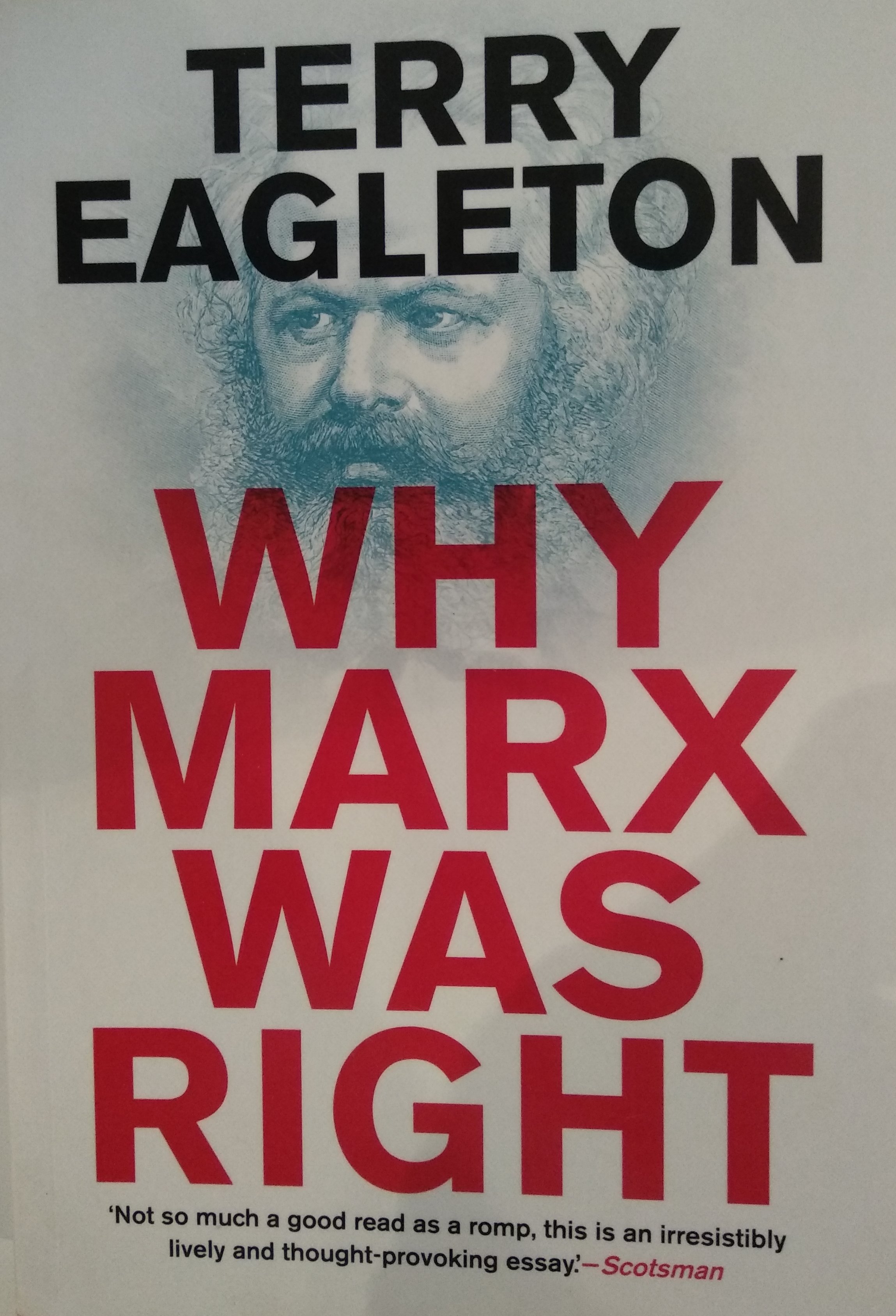
Why Marx Was Right
Terry Eagleton
One of the foremost Marxist critics of his generation forcefully argues against Marx's irrelevancy In this combative, controversial book, Terry Eagleton takes issue with the prejudice that Marxism is dead and done with. Taking ten of the most common objections to Marxism—that it leads to political tyranny, that it reduces everything to the economic, that it is a form of historical determinism, and so on—he demonstrates in each case what a woeful travesty of Marx's own thought these assumptions are. In a world in which capitalism has been shaken to its roots by some major crises, Why Marx Was Right is as urgent and timely as it is brave and candid. Written with Eagleton's familiar wit, humor, and clarity, it will attract an audience far beyond the confines of academia.
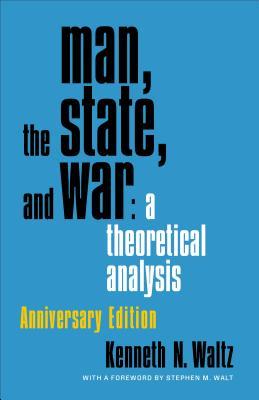
Man, the State, and War: A Theoretical Analysis
Kenneth N. Waltz, Stephen M. Walt
What are the causes of war? How might the world be made more peaceful? In this landmark work of international relations theory, first published in 1959, the eminent realist scholar Kenneth N. Waltz offers a foundational analysis of the nature of conflict between states. He explores works by both classic political philosophers, such as St. Augustine, Hobbes, Kant, and Rousseau, and modern psychologists and anthropologists to discover ideas intended to explain war among states and related prescriptions for peace. Waltz influentially distinguishes among three “images” of the origins of those that blame individual leaders or human nature, those rooted in states’ internal composition, and those concerning the structure of the international system. With a foreword by Stephen M. Walt on the legacy and continued relevance of Waltz’s work, this anniversary edition brings new life to a perennial international relations classic.
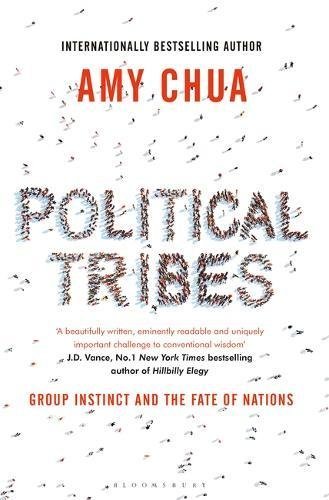
Political Tribes: Group Instinct and the Fate of Nations
Amy Chua
The bestselling author of Battle Hymn of the Tiger Mother , Yale Law School Professor Amy Chua offers a bold new prescription for reversing our foreign policy failures and overcoming our destructive political tribalism at homeHumans are tribal. We need to belong to groups. In many parts of the world, the group identities that matter most - the ones that people will kill and die for - are ethnic, religious, sectarian, or clan-based. But because America tends to see the world in terms of nation-states engaged in great ideological battles - Capitalism vs. Communism, Democracy vs. Authoritarianism, the "Free World" vs. the "Axis of Evil" - we are often spectacularly blind to the power of tribal politics. Time and again this blindness has undermined American foreign policy.In the Vietnam War, viewing the conflict through Cold War blinders, we never saw that most of Vietnam's "capitalists" were members of the hated Chinese minority. Every pro-free-market move we made helped turn the Vietnamese people against us. In Iraq, we were stunningly dismissive of the hatred between that country's Sunnis and Shias. If we want to get our foreign policy right - so as to not be perpetually caught off guard and fighting unwinnable wars - the United States has to come to grips with political tribalism abroad.Just as Washington's foreign policy establishment has been blind to the power of tribal politics outside the country, so too have American political elites been oblivious to the group identities that matter most to ordinary Americans - and that are tearing the United States apart. As the stunning rise of Donald Trump laid bare, identity politics have seized both the American left and right in an especially dangerous, racially inflected way. In America today, every group feels whites and blacks, Latinos and Asians, men and women, liberals and conservatives, and so on. There is a pervasive sense of collective persecution and discrimination. On the left, this has given rise to increasingly radical and exclusionary rhetoric of privilege and cultural appropriation. On the right, it has fueled a disturbing rise in xenophobia and white nationalism.In characteristically persuasive style, Amy Chua argues that America must rediscover a national identity that transcends our political tribes. Enough false slogans of unity, which are just another form of divisiveness. It is time for a more difficult unity that acknowledges the reality of group differences and fights the deep inequities that divide us.

China's Second Continent: How a Million Migrants Are Building a New Empire in Africa
Howard W. French
A New York Times Notable Book Chinese immigrants of the recent past and unfolding twenty-first century are in search of the African dream. So explains indefatigable traveler Howard W. French, prize-winning investigative journalist and former New York Times bureau chief in Africa and China, in the definitive account of this seismic geopolitical development. China’s burgeoning presence in Africa is already shaping, and reshaping, the future of millions of people. From Liberia to Senegal to Mozambique, in creaky trucks and by back roads, French introduces us to the characters who make up China’s dogged emigrant entrepreneurs singlehandedly reshaping African infrastructure, and less-lucky migrants barely scraping by but still convinced of Africa’s opportunities. French’s acute observations offer illuminating insight into the most pressing unknowns of modern Sino-African Why China is making these cultural and economic incursions into the continent; what Africa’s role is in this equation; and what the ramifications for both parties and their people—and the watching world—will be in the foreseeable future.One of the Best Books of the Year at • The Economist • The Guardian • Foreign Affairs
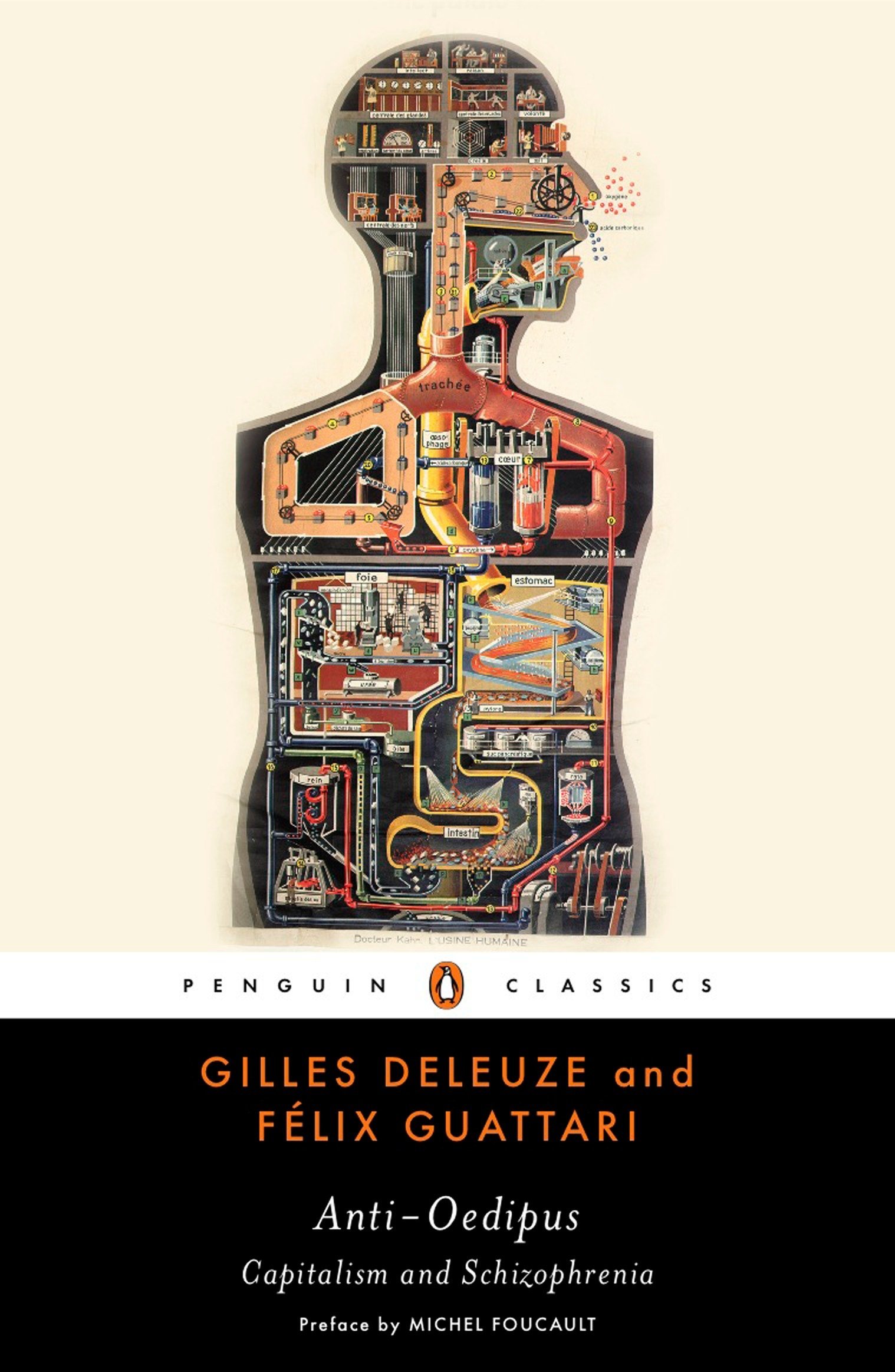
Anti-Oedipus: Capitalism and Schizophrenia
Gilles Deleuze, Félix Guattari, Robert Hurley, Mark Seem, Helen R. Lane, Michel Foucault
An "introduction to the nonfascist life"--Michel Foucault When it first appeared in France, Anti-Oedipus was hailed as a masterpiece by some and "a work of heretical madness" by others. In it, Gilles Deleuze and Félix Guattari set forth the following theory: Western society's innate herd instinct has allowed the government, the media and even the principles of economics to take advantage of each person's unwillingness to be cut off from the group. What's more, those who suffer from mental disorders may not be insane, but could be individuals in the purest sense, because they are by nature isolated from society. More than twenty-five years after its original publication, Anti-Oedipus still stands as a controversial contribution to a much-needed dialog on the nature of free thinking.